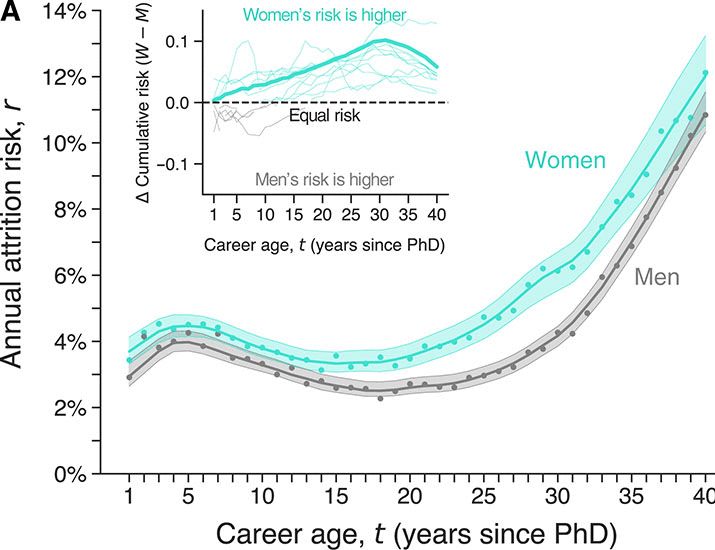
Political Psychology, Morality, Belief Systems. He/him.
German judges have discretion to apply rehabilitative juvenile criminal law (Jugendstrafrecht) or punitive adult criminal law to 18–20-year-old offenders. We show that immigrant youths are ~10 percentage points less likely to be sentenced under juvenile law
Anti-Immigrant Bias in the Choice Between Punitive and Rehabilitative Justice - https://cup.org/49vUfVa
- @riazsascha.bsky.social & @mhamjediers.bsky.social
#OpenAccess

German judges have discretion to apply rehabilitative juvenile criminal law (Jugendstrafrecht) or punitive adult criminal law to 18–20-year-old offenders. We show that immigrant youths are ~10 percentage points less likely to be sentenced under juvenile law
Our paper, FirstView at @politicalanalysis.bsky.social, tackles this question using browsing data from three U.S. samples (Facebook, YouGov, and Lucid):

Our paper, FirstView at @politicalanalysis.bsky.social, tackles this question using browsing data from three U.S. samples (Facebook, YouGov, and Lucid):
A short 🧵:
www.nature.com/articles/s41...
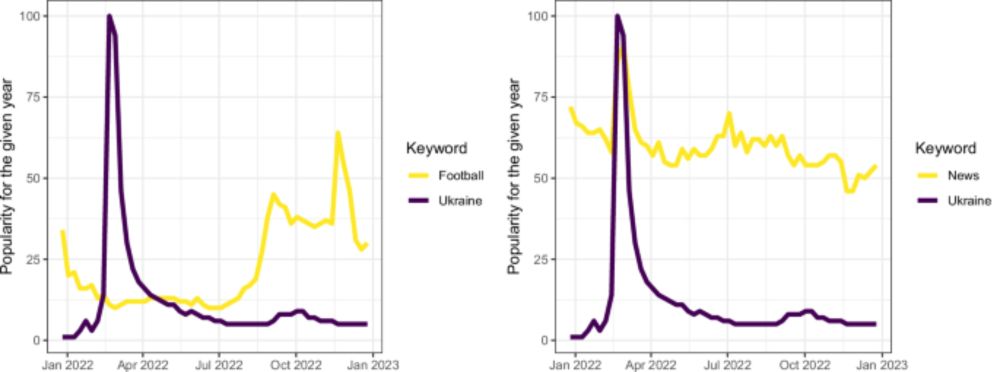
A short 🧵:
www.nature.com/articles/s41...
We’re thrilled to announce the launch of the European Political Science Society (EPSS): a new, member-led, not-for-profit association built to support our scholarly community.
🔗 epssnet.org
Here’s a thread with everything you need to know.
🧵
We’re thrilled to announce the launch of the European Political Science Society (EPSS): a new, member-led, not-for-profit association built to support our scholarly community.
🔗 epssnet.org
Here’s a thread with everything you need to know.
🧵
Do election outcomes affect participation in post-election surveys? And specifically, do election winners respond more than losers? The short answer: not really.
The slightly longer answer: 🧵👇
academic.oup.com/ijpor/articl...
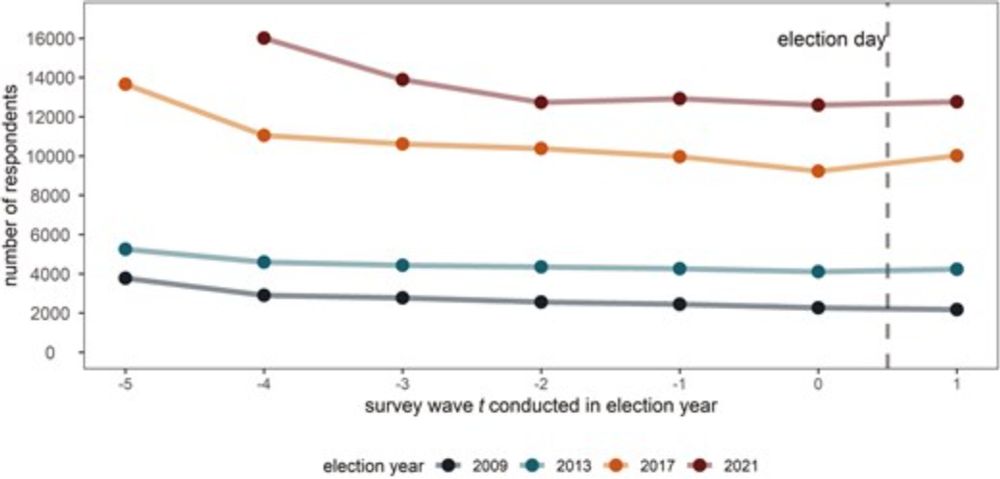
Do election outcomes affect participation in post-election surveys? And specifically, do election winners respond more than losers? The short answer: not really.
The slightly longer answer: 🧵👇
academic.oup.com/ijpor/articl...
Prominent theories in political psychology argue that threat causes increases in conservatism. Early experimental work supported this idea, but many of these studies were (severely) underpowered, and examined only a few threats and ideological DVs. 1/n osf.io/preprints/ps...
Prominent theories in political psychology argue that threat causes increases in conservatism. Early experimental work supported this idea, but many of these studies were (severely) underpowered, and examined only a few threats and ideological DVs. 1/n osf.io/preprints/ps...
🔓:
doi.org/10.1177/1354...
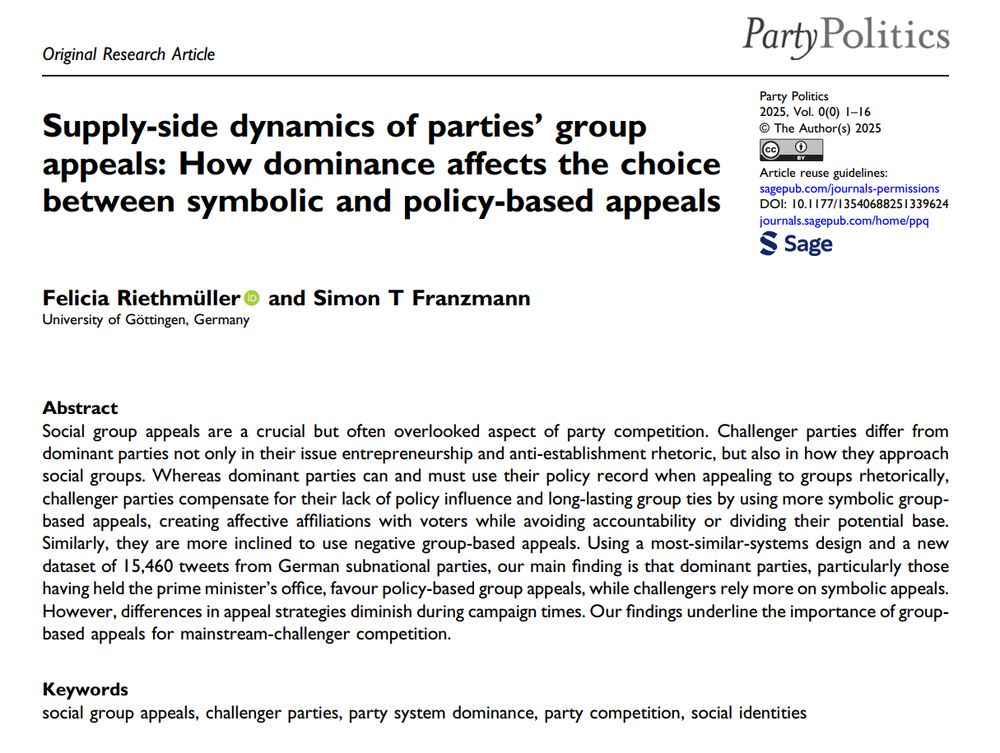
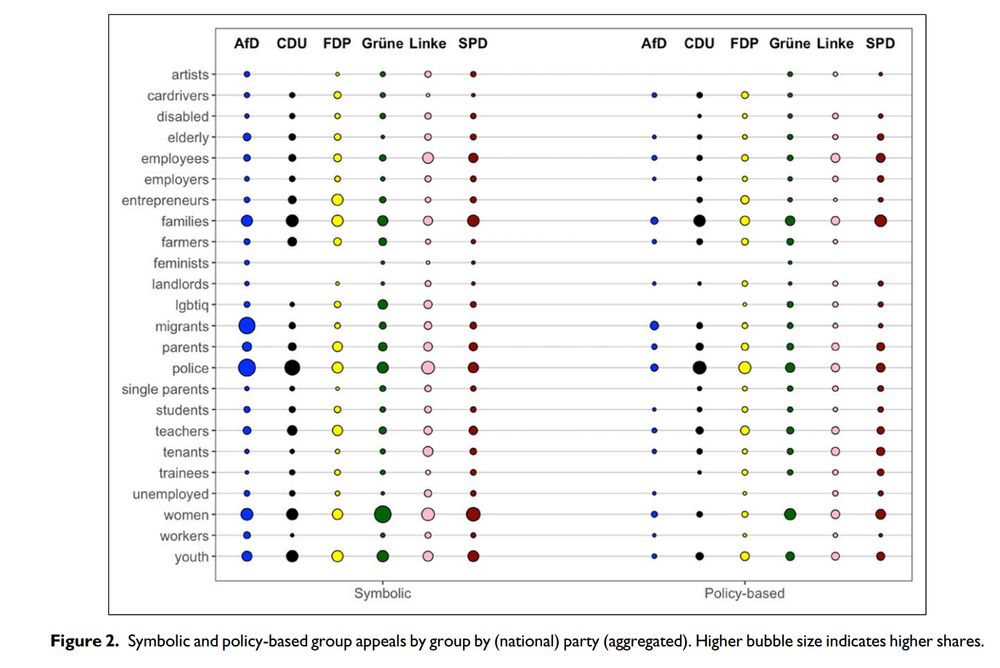
🔓:
doi.org/10.1177/1354...
@wepsocial.bsky.social
See the thread below:
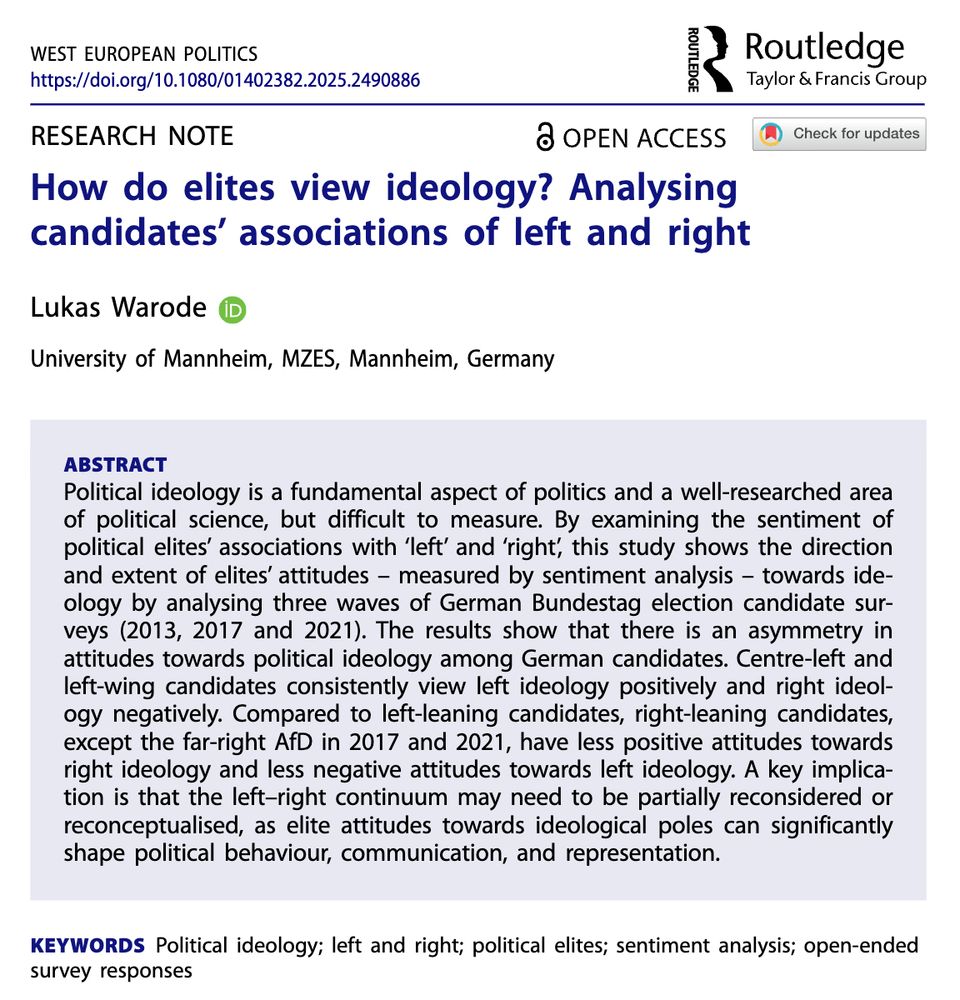
@wepsocial.bsky.social
See the thread below:
We employ a longitudinal analysis using the @britishelectionstudy.com to investigate the causal effect of the psychological trait of authoritarianism on political attitudes and voting 🧵
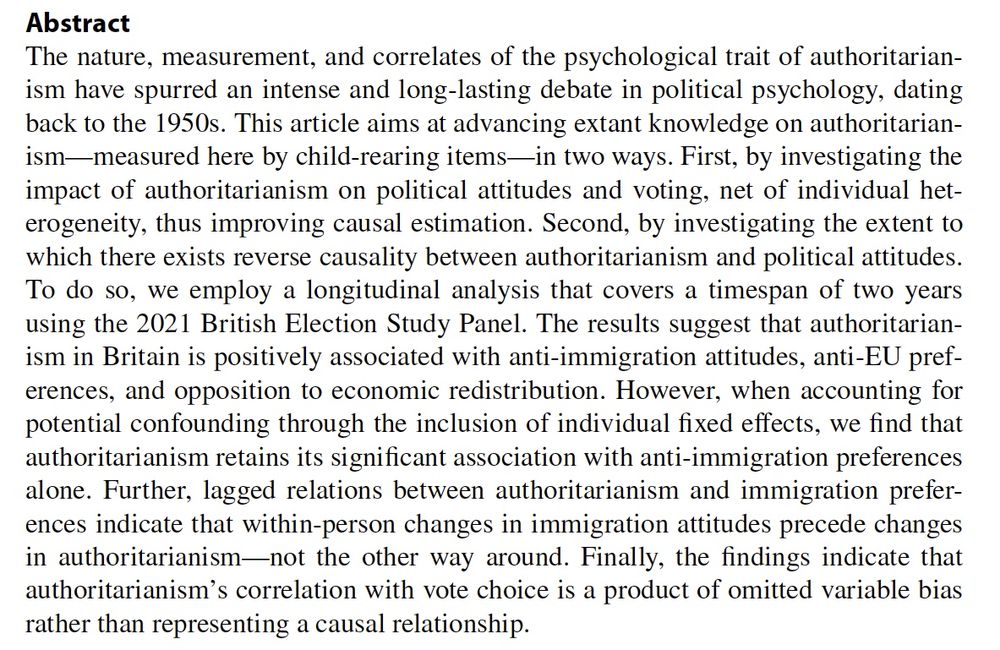
We employ a longitudinal analysis using the @britishelectionstudy.com to investigate the causal effect of the psychological trait of authoritarianism on political attitudes and voting 🧵
www.pnas.org/doi/10.1073/...
Why do people overestimate the size of politically relevant groups (immigrant, LGBTQ, Jewish) and quantities (% of budget spent on foreign aid, % of refugees that are criminals)?🧵👇

www.pnas.org/doi/10.1073/...
Why do people overestimate the size of politically relevant groups (immigrant, LGBTQ, Jewish) and quantities (% of budget spent on foreign aid, % of refugees that are criminals)?🧵👇
Based on a novel “Multiple Unexpected Events during Survey Design” (MUESD), I contextualize previous findings suggesting that Europeans become more empathetic toward migrants when exposed to migrant suffering.
www.cambridge.org/core/journal...
A Summary Thread: 1/15
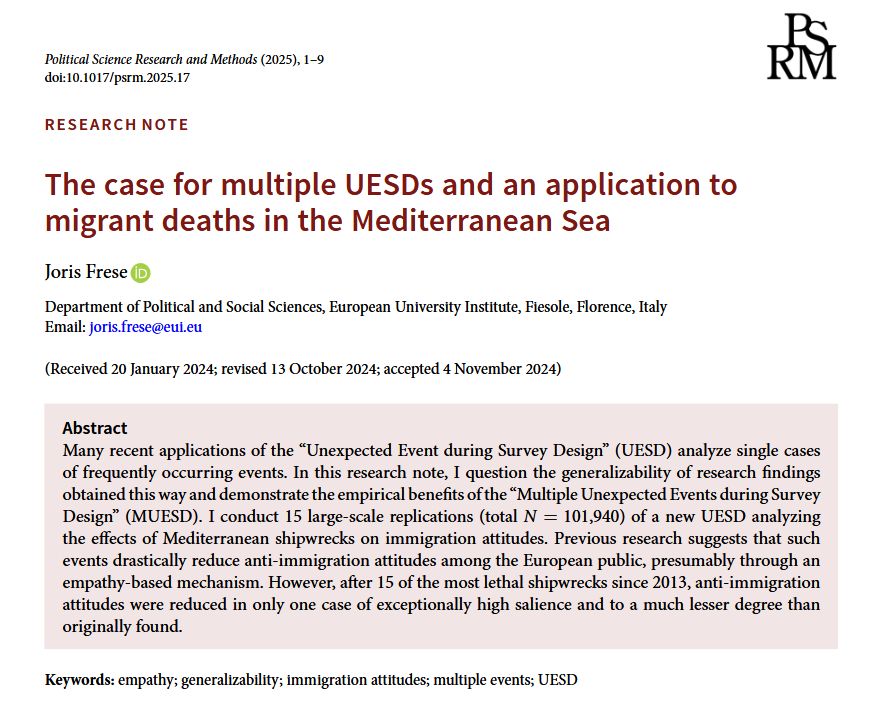
Based on a novel “Multiple Unexpected Events during Survey Design” (MUESD), I contextualize previous findings suggesting that Europeans become more empathetic toward migrants when exposed to migrant suffering.
www.cambridge.org/core/journal...
A Summary Thread: 1/15


www.sciencedirect.com/science/arti...
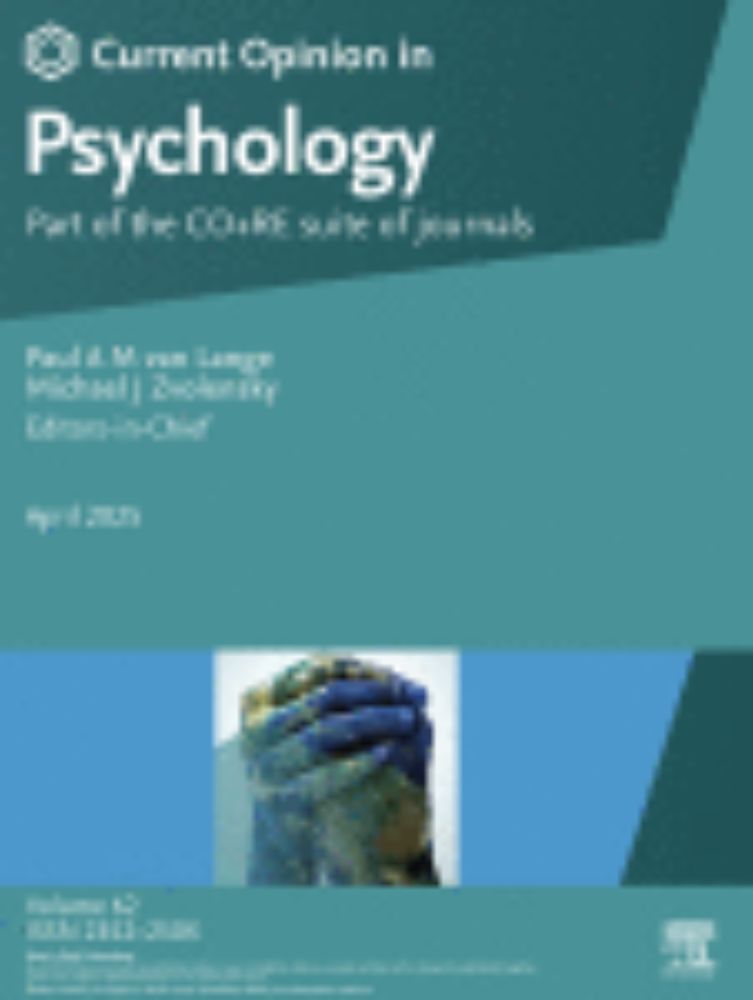
www.sciencedirect.com/science/arti...
With DOGE it now seems to be official government strategy from Trump & Musk
But the goal seems the same: Burning down existing structures for selfish status gain
With DOGE it now seems to be official government strategy from Trump & Musk
But the goal seems the same: Burning down existing structures for selfish status gain
In a new @bjpols.bsky.social paper w/ @bertous.bsky.social & @michaelhunklinger.bsky.social we answer this question using a double-list experiment across 🇬🇧 🇺🇸 🇩🇪 🇳🇱
doi.org/10.1017/S000...
Spoiler: Yes. 🧵
In a new @bjpols.bsky.social paper w/ @bertous.bsky.social & @michaelhunklinger.bsky.social we answer this question using a double-list experiment across 🇬🇧 🇺🇸 🇩🇪 🇳🇱
doi.org/10.1017/S000...
Spoiler: Yes. 🧵
Closed-ended survey responses are efficient and easy to analyze, but limit what respondents can say. Open-ended responses are useful for letting respondents answer with more depth in their own words (as opposed to yours).

Closed-ended survey responses are efficient and easy to analyze, but limit what respondents can say. Open-ended responses are useful for letting respondents answer with more depth in their own words (as opposed to yours).

